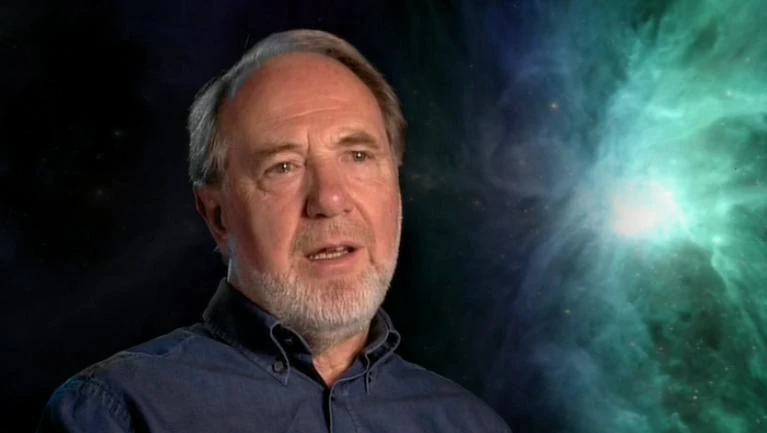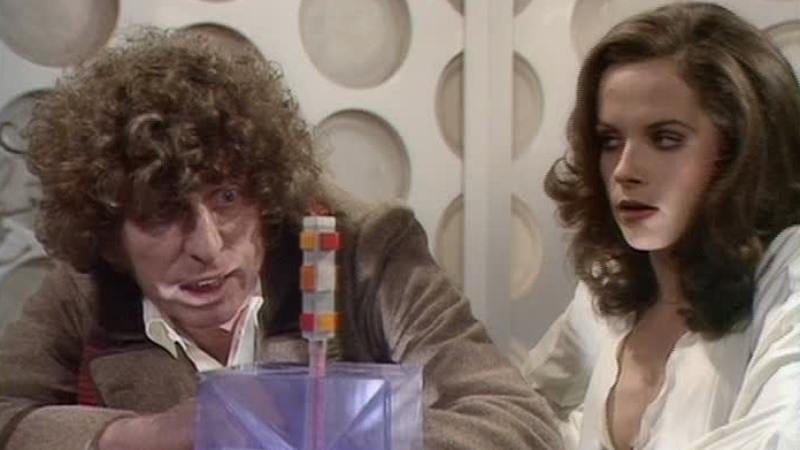Anthony Read became the Script Editor of Doctor Who in the wake of Robert Holmes’ successful time on the show. After Philip Hinchcliffe was moved on from the producer role, Read inherited a situation that had the potential to unravel.

New producer Graham Williams had been ordered to make the show more family friendly and humorous, despite his reservations, and it was his vision for the show that led the way. Williams asked Holmes to stay on as Script Editor for a few stories to help with the transition period, hoping he’d stay for longer but aware that he was unlikely to agree to a fourth full year on the show. So it proved, and Read was brought in for the final two stories of Season 15, doing some uncredited work on The Image of the Fendahl.
Williams disliked the way Doctor Who stories ‘came together quite coincidentally’, and wanted something linking them together rather than another random assortment. He originally considered bringing UNIT back, but this was vetoed by Bill Slater (the Head of Serials), and wasn’t able to organise his ‘Key to Time’ idea in time for Season 15.
Read’s first commission was from regular writers Bob Baker and Dave Martin, hoping they’d be able to put together a script that didn’t require too much work to give him an easy way in to the role. This despite Baker and Martin regularly contributing first drafts that needed reining in. Read did make a decision that was to influence his and Williams’ time on the show by asking the writers to take inspiration from Classical myth.
It was his second commission that was to have a knock-on effect, however, as he asked David Weir - who he had worked with before - to contribute a season finale involving Gallifrey and a race of cat people. Despite the edict from BBC management to save money, the submitted script was even more ambitious than expected.
Soaring inflation rates had caused problems with the set construction for Underworld, and union disputes limited studio time for the following story. The initially tricky limitations imposed on the new team had been made all the more difficult to cope with.
Read and Williams, with advice from Robert Holmes, wrote The Invasion of Time in about five days. Williams did not write a proper departure for companion Leela in the hope that Louise Jameson would choose another year of elevating material she was clearly better than. She did not, hence her abrupt and ill-fitting exit.
Exactly the same situation would develop with Mary Tamm, although Williams did at least devise the character before Jameson left as a precautionary measure.
Season 15 is turbulent, a programme in transition from an established and popular identity that has been forced into finding a different one. Where it succeeded, though, is in moving far enough towards a new approach that the next series could be a lot more tonally consistent, though also ran into budgetary problems during its final story.
The impression of this period of Doctor Who is that it was very much led by Graham Williams, with Read responding to his ideas and adding comedy to the scripts. The Key to Time concept wasn’t fully developed when they started writing, hoping that a suitable conclusion would appear along the way. Read’s task was to find writers for this season as early as possible so the outline of the story could be confirmed.
Robert Holmes wrote the first story of the season, which remains one of the most sensible ideas in Doctor Who history. Read then commissioned Douglas Adams and David Fisher, asking the latter to step in when the fourth writer for the series pulled out. He did, however, commission Bob Baker and Dave Martin to write the series finale which, as you may have guessed, was far too ambitious for Doctor Who’s budget again and lacked the quality of the earlier stories in the season.
As it wouldn’t be the Graham Williams era without something else compounding this misfortune, Baker and Martin split up as a writing duo after completing this story, leaving Read to simplify The Armageddon Factor. Douglas Adams shadowed him as script editor during this process, and indeed co-wrote the final scene with Williams.

Anthony Read was absolutely sure that he was not staying with Doctor Who beyond Season 16, having been delighted to have the opportunity to work on the show but considering it a guest contract for a year. While following Williams’ lead, what he contributed was a stark lesson:
There weren’t enough writers out there who could do Doctor Who.
This has often been true, but what’s rescued the situation is a strong Producer and Script Editor team who stay with the show for more than two series together. Rewrites can be done, contingency plans made.
However, Read was never intending to stay longer than a year, and Williams was facing an increasingly demanding Tom Baker, inflation, strike action, the BBC demanding more and then less humour, and his own mistakes.
Read may have lacked foresight in asking for Kroll, the series biggest ever monster, and getting Baker and Martin to write key stories at a time when financial restraint was paramount, but he brought David Fisher into the fold and fought for Douglas Adams’ script when it was deemed too comedic. He was refreshing, in the same way an oasis is refreshing when there is still a significant amount of desert to cross.
All the show needed, though, was a talented and hardworking team who were on the same page and were willing to stick with the show.
How difficult could that be to find?
No comments:
Post a Comment